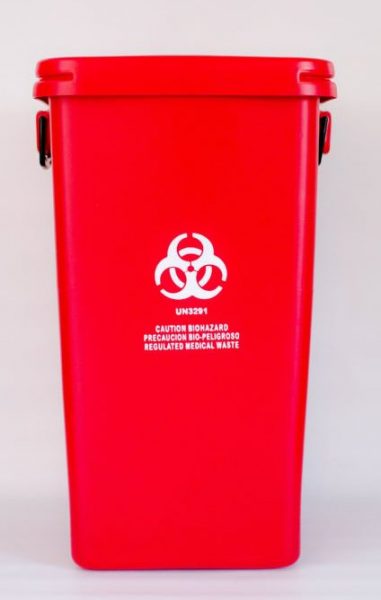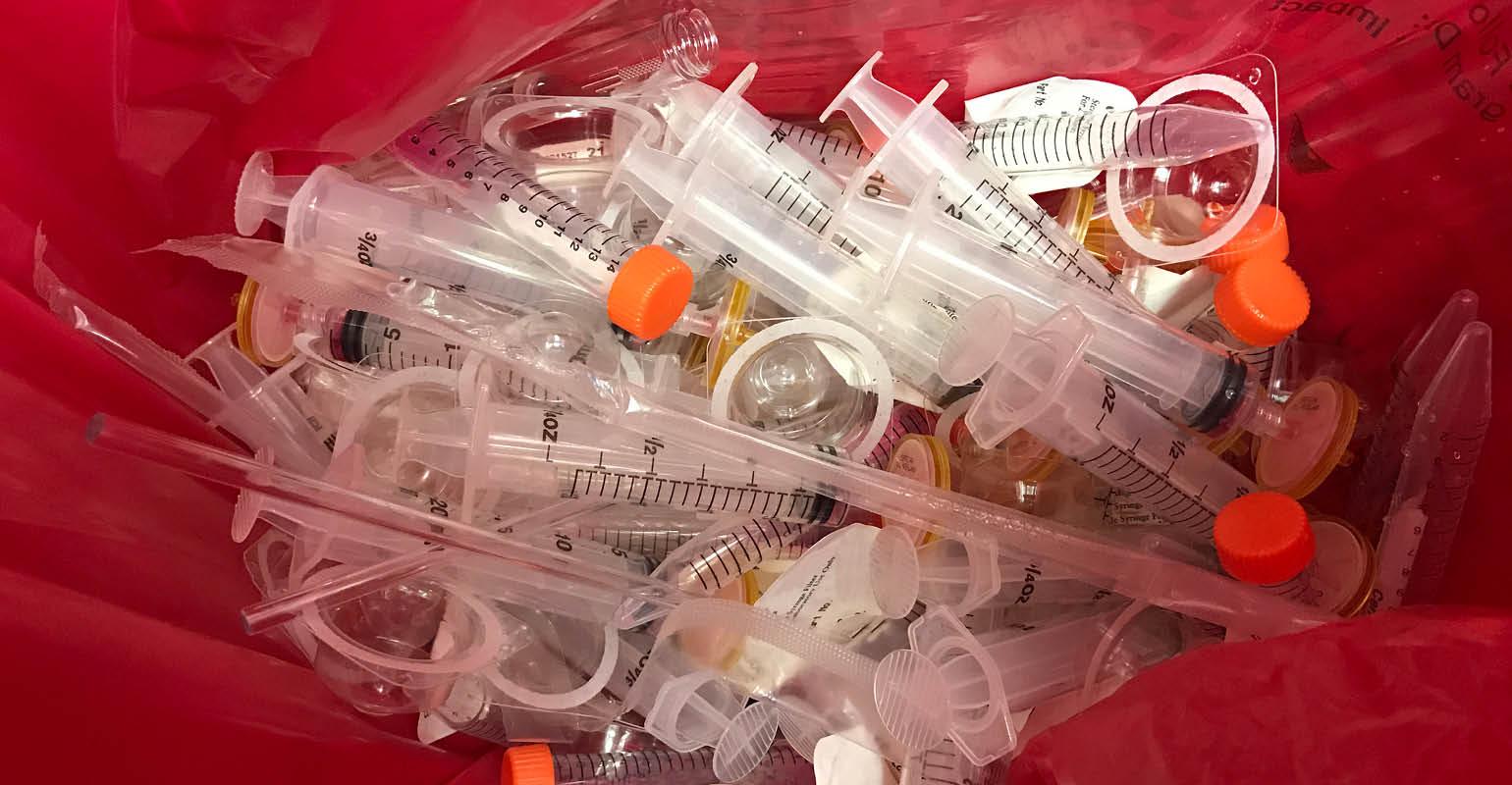Shielding Health: Specialist Medical Waste Removal Services for a Tidy Environment
Keep Compliant and Safe: Just How to Dispose of Medical Waste Correctly
In today's ever-changing healthcare landscape, guaranteeing conformity and safety and security when it comes to clinical waste disposal is of utmost importance. In this discussion, we will explore the various types of medical waste, the involved dangers, the legal demands, and the finest methods for preserving a certified and risk-free clinical waste administration system.
Value of Appropriate Clinical Waste Disposal
Appropriate medical waste disposal is of utmost significance in guaranteeing the security and well-being of both healthcare workers and the public. Clinical waste, that includes products such as utilized needles, polluted dressings, and ended medications, positions major health risks otherwise managed and gotten rid of appropriately.

In addition, inappropriate disposal of clinical waste can result in environmental contamination. When medical waste is not set apart, dealt with, or disposed of properly, it can find its way right into garbage dumps or bodies of water, potentially polluting the water, dirt, or air sources. This can have destructive results on environments and human health and wellness, as hazardous materials might leach right into the atmosphere or be released right into the environment.
Kinds Of Clinical Waste and Their Dangers
The diverse variety of medical waste generated by medical care facilities presents numerous risks that have to be very carefully dealt with to ensure appropriate disposal and avoid possible damage to public health and the setting. Medical waste can be identified into various classifications based upon its attributes and level of danger.
One kind of medical waste is transmittable waste, which includes things that are contaminated with blood or various other potentially contagious products. This can include made use of needles, syringes, and other sharp items, along with tissues, swabs, and dressings from people with infectious illness. Improper disposal of contagious waste can bring about the transmission of dangerous microorganisms and the spread of infections.
An additional category is contaminated materials, that includes materials that are hazardous, combustible, corrosive, or responsive. This can consist of chemicals, drugs, and certain medical tools. Messing up or improper disposal of harmful waste can cause environmental contamination and position dangers to the wellness of waste employees and the public.
Contaminated waste is one more kind of clinical waste that should be thoroughly managed. This waste consists of products that consist of radioactive compounds, such as used radiation therapy resources or polluted lab products. Incorrect handling or disposal of radioactive waste can bring about radiation exposure and serious wellness threats.
Last but not least, non-hazardous basic waste, such as paper, packaging products, and food waste, is additionally created by medical care centers. While this waste might not posture considerable dangers, it still needs to be properly managed to preserve cleanliness and prevent the destination of insects.
To guarantee the risk-free disposal of medical waste, healthcare facilities must apply proper segregation, storage space, therapy, and transportation techniques. This includes utilizing suitable containers, labeling, and training for staff, along with abiding with neighborhood guidelines and guidelines. By attending to the threats related to various types of medical waste, healthcare centers can safeguard public health and the setting.
Governing and legal Demands for Disposal
In order to make sure the risk-free and appropriate disposal of clinical waste, medical care facilities should follow legal and governing requirements. These demands remain in location to shield public health and the environment from the prospective risks linked with medical waste. Clinical waste is classified as a special classification of waste because of its prospective to transmit contagious illness and consist of harmful materials.

Some usual needs include the segregation and correct product packaging of clinical waste, making use of approved containers and labels, and the implementation of secure handling and transport procedures - medical waste removal near me. Medical care centers may additionally be required to maintain records of their waste administration techniques and give documents to regulative authorities upon request
Failure to abide by these legal and regulatory needs can lead to charges, penalties, and reputational damage for healthcare facilities. It is, for that reason, crucial for medical care companies to prioritize compliance and establish robust waste monitoring procedures to ensure the proper and secure disposal of clinical waste.
Finest Practices for Safe Medical Waste Administration
Medical care centers must stick to market best techniques to make certain the efficient and secure administration of clinical waste - medical waste disposal services with WasteX. Carrying out these ideal methods not only helps secure the environment and public wellness yet also decreases the risk of potential lawful and financial effects
One of the vital ideal techniques is the appropriate partition and containment of different kinds Continue of medical waste. This involves utilizing color-coded containers and plainly identifying them to make sure that each kind of waste is taken care of appropriately. In addition, medical care facilities need to have marked areas for storage and disposal of medical waste, with clear standards and treatments in place.
Another vital element of secure clinical waste management is the training and education and learning of medical care team. All personnel who deal with medical waste should get comprehensive training on click now the appropriate handling, storage space, and disposal procedures. It is essential to guarantee that personnel are aware of the prospective dangers connected with medical waste and are equipped with the required expertise and skills to handle it securely.
Regular surveillance and auditing of waste monitoring practices is additionally necessary. This involves frequently evaluating waste monitoring treatments, carrying out inspections, and maintaining precise records. By monitoring waste monitoring practices, healthcare centers can determine any type of possible issues or areas for improvement and take rehabilitative activities appropriately.
Finally, health care facilities should focus on making use of eco-friendly disposal methods whenever feasible. This includes using waste therapy technologies such as autoclaving or incineration, which can help in reducing the quantity and harmful nature of medical waste.
Eco-Friendly Solutions for Medical Waste Disposal
Applying green services for clinical waste disposal is crucial for healthcare centers to decrease environmental impact and ensure lasting techniques. Typical methods of medical garbage disposal, such as incineration and landfilling, have been located to release dangerous contaminants into the air and contaminate dirt and water sources. As an outcome, there is a growing requirement for alternate methods that are both safe and ecologically pleasant.
One environment-friendly service is the implementation of on-site waste treatment systems. These systems use cutting-edge technologies to securely process clinical waste within the healthcare facility itself. By dealing with the waste on-site, transportation emissions and risks connected with off-site disposal are reduced. Additionally, these systems frequently use innovative sanitation techniques, such as steam or microwave therapy, to ensure the total destruction of transmittable organisms.
One more green approach is the fostering of recycling programs for sure kinds of clinical waste. Products such as glass, plastics, and steels can be recycled as opposed to disposed of in land fills. By applying segregation and reusing programs, medical care centers can considerably decrease their waste quantity and reduce their environmental footprint.
Furthermore, medical care centers can explore using multiple-use medical devices and supplies. By selecting multiple-use products, instead than single-use options, the amount of waste created is substantially reduced. Reusable items can be disinfected and made use of several times, resulting in price financial savings and less environmental impact.
Conclusion
In verdict, correct disposal of medical waste is critical for preserving compliance and making sure safety and security. Comprehending the sorts of clinical waste and their linked threats is very important in order to execute the appropriate disposal methods. Sticking to governing and lawful needs is necessary for staying clear of fines and securing the environment. Adhering to best practices for secure medical waste management and exploring green solutions can add to a liable and sustainable approach to squander disposal in the health care sector.
In this conversation, we will explore the numerous types of medical waste, the associated threats, the legal needs, and the ideal practices for preserving a safe and compliant medical waste administration system - medical waste removal service.One type of clinical waste is transmittable waste, which consists of things that are polluted with blood or other possibly infectious products.Contaminated waste is Continue an additional type of medical waste that must be carefully handled. Medical waste is classified as a special group of waste due to its prospective to transmit transmittable diseases and have harmful compounds
Following best methods for secure clinical waste management and discovering green services can contribute to a liable and sustainable method to throw away disposal in the health care industry. medical waste disposal services with WasteX.